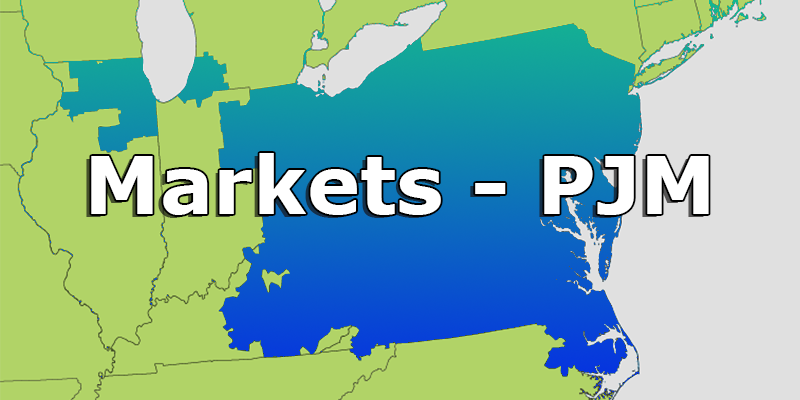
Unlike ERCOT, which relies solely on the price of energy to ensure sufficient supply, the PJM market, ISO-NE, and the NYISO all rely on capacity payments to ensure that there is enough electricity generation available to meet demand. Like wholesale energy prices, capacity prices in PJM are set through an annual auction. Generating units that clear this annual capacity auction are guaranteed a fixed revenue stream in exchange for the guarantee of their availability to run if called upon. This revenue is designed to ensure that an appropriate amount of generation is available at times of peak energy demand.
States increasingly use out-of-market payments to subsidize the market revenue received by carbon-free generators. These payments allow carbon-free generators to lower their capacity bids since they are already guaranteed revenue by state incentives. Zero Emission Credits (ZECs) paid by electricity customers in states such as New Jersey, New York, and Illinois to the owners of nuclear power plants are examples of out-of-market payments that some claim artificially deflate capacity prices. Fossil fuel generators argue that these out of market payments suppress the price of capacity to their detriment and give these subsidized assets an unfair advantage.
On April 16th, the FERC upheld its previous ruling from December 2019 that upended the current regulatory framework within PJM. Through that ruling, the FERC commissioners voted 2-1 to apply the Minimum Offer Price Rule (MOPR) to almost all generation that receives or could receive a state subsidy in PJM. The original intent of the MOPR was to provide a price floor that would prevent new market entrants from under-bidding other generators, lowering the price of capacity and ultimately discouraging the construction of new power generating assets. In upholding its December ruling, the FERC is directing PJM to determine the minimum capacity price that can be bid by these units. Critics claim that this action will penalize the owners of clean energy resources and impede the development of new renewable power assets such as wind and solar farms by artificially pricing subsidized generation assets out of the capacity market. This would lead to both higher capacity clearing prices for end-use customers and reduce the economic viability of subsidized assets. In March, PJM submitted a proposal to the FERC that would selectively allow some renewable projects to participate in the auction with a lower MOPR floor on a case-by-case basis. This, too, was rejected by the FERC in its April 16th ruling.
In addition to aggravating the concerns of clean technology developers, this recent action by the FERC has also caused some states, such as New Jersey and Illinois, to reevaluate their participation in the PJM marketplace. These states have adopted aggressive renewable energy standards and claim that FERC’s action oversteps and interferes with a state’s right to establish its clean energy initiatives. However, grid operators, such as PJM, are finding it near impossible to create a competitive marketplace with consistent rules among states that have inconsistent renewable power goals and carbon emission standards.
Last month, PJM proposed a schedule to resume its suspended capacity auctions. If everything goes as planned, the next PJM capacity auction process could begin in the first quarter of 2021 or sooner if FERC and PJM can agree on the details and specifics of the MOPR.


